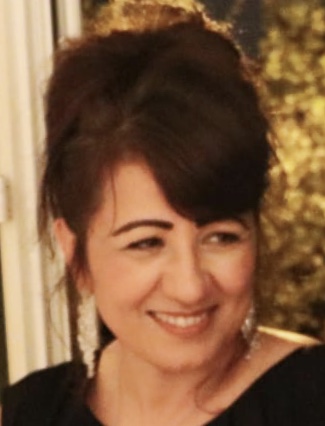
Sunita is an Executive Coach, Trainer and Consultant. She is of Indian origin and was born in London before moving to Geneva in 1992. She has a Psychology background (specialising in Occupational Psychology) and a Post Graduate in the Development and Training of Adults. She also completed a Masters in Ressources Humaines, Coaching et Gestion des Carrières at the University of Geneva.
During her 25 years experience Sunita's drive has always been to help people to do their best and hence led her to create Walk The Talk.
In her free time Sunita is a Mentor for the Branson Center of Entrepreneurship and a proud member of the School in The Cloud Team.
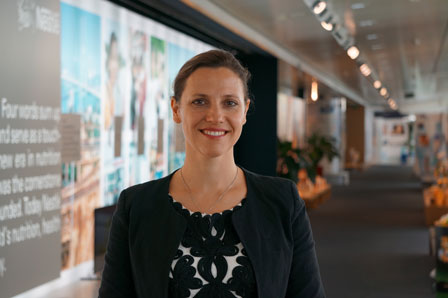
Séverine Jourdain is the Head of Coaching at Nestlé Group. However, she has had many lives prior to Nestlé and perhaps it is her diverse background that has made her what she is today; authentic, passionate, non-judgmental and driven with a capital D! Séverine perceives coaching at Nestlé as a Business performance accelerator as well as an opportunity for individuals to progress and flourish. Indeed, Nestlé has been gradually building the awareness around coaching since many years through their “Every Day Coaching” program and more recently through the implementation of a structured global coaching network. Séverine unquestionably embodies this drive by Nestlé and in doing so she is having the time of her life!
I talked to her at the picturesque town of Vevey home to Nestlé HQ. I sincerely hope you enjoy the interview as much as I did!
Sunita
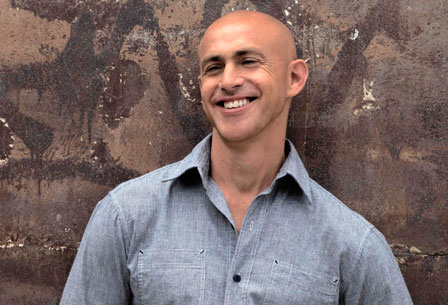
When is the last time you did absolutely nothing for 10 whole minutes? Not texting, talking or even thinking?
Andy Puddicombe is a meditation and mindfulness expert and he wants you to take a break -- not just from work but also from your own mind. Andy, a former Buddhist monk and co-founder of Headspace, is committed to make meditation more accessible to more people in their everyday lives. Besides being a Ted Talk speaker, Andy shares his wisdom with the Huffington Post and the Guardian on the benefits of mindful thinking for healthy living. He was recently interviewed' by Ed Halliwell, a meditation author and writer for The Guardian’s Web site, who said:
“Mr Puddicombe is doing for meditation what someone like Jamie Oliver has done for food.”
I hope you like the interview as much as did.
Enjoy!
Sunita
Sunita: How did you get to where you are today?
Andy Puddicombe: With the love, help and support of many, many different people. Having trained as a Buddhist monk, I felt really passionate about meditation and so when I came back to the UK I really wanted to make it more accessible. Then I was fortunate enough to meet my business partner Rich Pierson and that really made the change. We swapped our skills, I taught him meditation and he taught me how to make the techniques relevant and available to the public – Headspace was the outcome of that.
Sunita: Why did you get into Mindfulness?
Andy: I was at university studying Sports Science at the time and although it’s a difficult thing to put into words, one day I just found myself thinking, “I really want to become a Buddhist monk”. I had been introduced to meditation earlier in life as my mum was interested in it, and done a fair bit on and off throughout my teens. In retrospect it sounds crazy, but at the time it felt like the most natural thing in the world and a very easy decision to make.
I went away because I wanted to better understand how to stop the endless chatter inside my head and I felt I wasn’t getting that through normal education. Having trained as a monk and started to teach meditation to others, I was then keen to find a way to demystify meditation and make it available to a wider audience.
When I came back to the UK, I wanted to show people that meditation wasn’t all about sitting in the lotus position and chanting. I wanted to make it accessible, relevant and beneficial for as many people as possible. It’s been incredible to see how the perception of meditation has shifted in the ten years since then and to see how many more people are benefiting from this simple skill.
Sunita: What is Headspace about?
Andy: Headspace is a digital health platform, a gym membership for your mind. We already have well over 1 million users and that number grows every day. It is my personal wish to see the health and happiness of the world increase through the practice of meditation and the application of mindfulness. When meditation becomes just as much a part of people’s everyday routine as brushing their teeth or taking a shower, then we’ll have achieved our aim. In the meantime, we’ll continue to look for innovative ways to spread the word and to encourage people to give it a go.
Sunita: Describe a difficult challenge in your life and how you got over it?
Andy: I was diagnosed with testicular cancer in April last year, soon after moving from London to LA. I had an orchiectomy, removing the right testicle. As it was an aggressive form of cancer I was recommended secondary surgery on the lymphatic system and one round of chemo. But I found another doctor who was willing to take a less invasive approach and adopt a wait and see strategy. I get checked and scanned every few months and have been clear for nearly a year now.
I would say that mindfulness was, has been and continues to be integral to my recovery, on a number of levels. I already sat and practiced formal meditation on a daily basis, so already having learnt the skill of mindfulness made a huge difference. But I increased the amount I was doing as I was off work recovering and sat for maybe 3 sessions a day. I also had the good fortune to be in a lovely environment to recover, so I'd apply mindfulness to walking in the garden or doing my rehab exercises.
Sunita: In your opinion why are people finding it hard to balance work and life?
Andy: With the current pace of life and increasing demands - not least of which is the increasing digital chatter - there is no question that the mind is experiencing a new and potentially harmful degree of pressure. Most people assume that this stress is simply part of life, but it really doesn’t have to be that way. Meditation shows us how to live more skilfully.
Personally I’m not all that keen on this artificial separation of work and life. Work is part of life and our mind is mind, no matter where we are. Rather than try and balance something we don’t like or enjoy with the remaining hours of our day, why not find a way for the mind to be happy, no matter where we are or what we are doing? To me that’s the ultimate work-life balance.
Sunita: All the literature tells us to communicate with more compassion and more empathy but how can we practice that in the work place?
Andy: Mindfulness is about being present in the moment, free from distraction or judgment with a soft and open mind. So we practice it at work in the same way as we would anywhere else. The distinction between work and the rest of our life is really quite artificial and has nothing to do with reality. The more we practice mindfulness the more we see of our mind. By witnessing the inner struggles we go through, we start to understand what others are going through and why they might do and say the things that they do. This is empathy. The result is that we become more patient, less judgemental and less reactive, making for a calmer, more peaceful working environment.
Sunita: Could you share some of your strategies that we could use to keep more balanced?
Andy: Establishing a meditation practice is a great place to start. It can help to reduce feelings of stress and anxiety, improve your sleep, enhance productivity at work, improve your physical performance in sports and even help to soften the edges in relationships as we become more patient, better listeners, and perhaps a little kinder too. The range of benefits is vast and varies from person to person, but at the very least, it will make for a calmer and clearer mind. So, download the Headspace App – it’s free to try – and give Take10 a go. It’s just 10 minutes a day for 10 days and provides the perfect introduction to meditation, even for those people who don’t really ‘do’ meditation.
Sunita: What is the best piece of advice you were ever given?
Andy: To be kind. It doesn’t matter whether we are talking about it in terms of being kind to ourselves or others, only when we learn to let go the judgemental aspect of mind, when we embrace forgiveness, when we acknowledge our shared human experience, when we practice kindness, will we discover true peace of mind and happiness in our lives.
Sunita: What's the next challenge for you?
Andy: Well, I’m based in Los Angeles and I think that America is somewhere that’s crying out for Headspace. But the tradition of Eastern mysticism in America, particularly in California, is very established. So, while it means there is more openness around the subject, it also means there are more preconceptions too. We think of Headspace as meditation for the kind of people who don’t really do meditation. Often they’re the ones who need mindfulness the most and it’s those people I’d like to make Headspace more accessible for.
Sunita: What's next for you?
Andy: We have just launched Headspace V2, which has been a hugely exciting journey that is still unfolding for us. It’s almost 2 years in the making and represents all of the user feedback we’ve had from V1. Not only does it look stunning, but it also has some great new functionality that gives you much more choice as a user. So you can choose mindfulness packs which are suited to you, whether that’s around health, performance or relationships. You can also buddy up with friends and family if you want and even track your progress. We’ll even give you rewards when you do a certain number of days in a row. So seeing this become established as the foremost global health platform for the mind is what we’re working on right now.
“Rather than try and balance something we don’t like or enjoy with the remaining hours of our day, why not find a way for the mind to be happy, no matter where we are or what we are doing? To me that’s the ultimate work-life balance.”
Bio
Andy Puddicombe is a meditation and mindfulness expert. An accomplished presenter and writer, Andy is the voice of all things Headspace. In his early twenties, midway through a university degree in Sports Science, Andy made the unexpected decision to travel to the Himalayas to study meditation instead. It was the beginning of a ten-year journey, which took him around the world, culminating with ordination as a Tibetan Buddhist monk in Northern India. His transition back to normal life in 2004 was no less extraordinary. Training briefly at Moscow State Circus, he returned to London where he completed a degree in Circus Arts with the Conservatoire of Dance and Drama, whilst drawing up the early plans for what was later to become Headspace.
Resources: For more information on Andy and Mindfulness visit his website below:
- Headspace www.headspace.com
- How Mindfulness Can Change Your Life in 10 Minutes a Day: A Guided Meditation By Andy Puddicombe
- The Headspace Diet: 10 days to finding your ideal weight By Andy Puddicombe
Bio
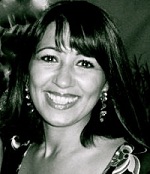
Sunita has a passion for helping individuals, teams and companies to maximize their potential. With over 20 years experience both in the UK & Switzerland, she created Walk The Talk, with the sole aim, to help professionals improve their Business Communication Skills. She is of Indian origin but was born and raised in Britain before she moved to Geneva in 1991. She has a Psychology background, (specializing in Occupational Psychology) and a Post Graduate in the Development and Training of Adults from the University of Surrey. Furthermore, she recently completed a Masters of Advanced Studies in "Gestion des RH et des Carrières," (Specialising in Career Management and Coaching), at the Universities of Geneva, Lausanne, Neuchatel & Fribourg.
Having successfully worked and operated in different cultures and languages, Sunita's strength lies in her ability to totally empathize with her clients and help them to perform their best.
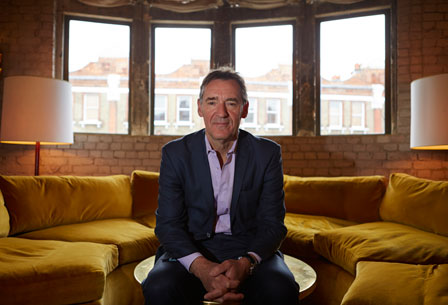
Jim O’ Neill has been called the “rock star of economics”, a pragmatic man, a visionary, and a Manchester United enthusiast…oh well you can’t win them all :-D. But perhaps he is best known for creating the acronym BRIC. Originating from a global paper he wrote in 2001, Jim predicted that Brazil, Russia, India and China would dominate growth in emerging markets. Jim worked for Goldman Sachs Group Inc. from 1995 until 2013. Before joining Goldman Sachs; he was head of global research at Swiss Bank Corporation.
Above all these tributes he is open, honest and talks a lot of common sense! I was very fortunate to chat to him and I hope you enjoy the interview as much as did.
Sunita
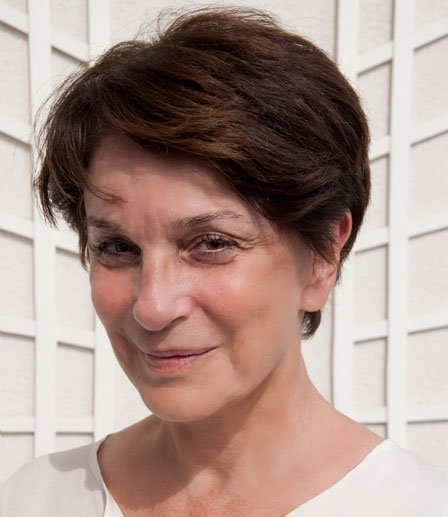
This year my blog is dedicated to interviewing leaders and subject matter experts to help promote healthier work-life balance. With any luck this will enable us to create better relationships, productivity and performance. I am convinced that this is an idea that needs to reverberate from the top and therefore will devote this year focusing on just that.
This month, I have been lucky enough to interview the brilliantly talented Nicolette de Joncaire. Nicolette joined l’AGEFI in December 2010 as a journalist, specialising in economic and financial affairs. Since summer 2012, she is chief editor of WORK, a magazine focused on women's achievements, www.workmag.me. She is keen to reiterate that WORK is not for women but refocuses attention on women. With over twenty-five years of business experience in finance and Information Technology, Nicolette has held various management positions and is a regular speaker on the topic of Risk.
I really hope you enjoy her interview as much as I did.
Enjoy!
Sunita
Sunita Sehmi: How did you get to where you are today?
Nicolette de Joncaire: I was in the banking industry for many years in London and then I decided to move to Geneva in 2002 to be closer to my extended family.
SS: How and why did you become a journalist?
NDJ: I wanted to do something different from banking…I did not have much journalistic experience but I did have extensive financial systems experience, so I knew what I was talking about. When I decided to choose a new career path, I contacted ten newspapers and got two replies. One of the replies was for a possible position at AGEFI. At that time AGEFI was the only business economic paper in the area. I was very lucky and was put on a two-weeks trial. It really made me realise just how open-minded the Swiss are, giving me an opportunity like that with no previous journalistic experience. I don’t think that happens everywhere.
SS: What is WORK magazine about?
NDJ: I was asked to be Chief Editor for WORK. WORK is a magazine in French for businesswomen, because women are underrepresented in business media. My original mandate was to create a “light” magazine for women. But I was determined to make it a very serious magazine, and not another frivolous one. I wanted to take a completely different angle. The assumption being is that society has moved on. We are 50 years down the line and still talking about equality. The legal framework for equality is in place and yet we are still complaining. I believe that the media has a very critical role to play and unfortunately still maintains an image of women, which is extremely out-dated. It portrays women on the basis of their looks and as consumers and not on their achievements. Women who are achieving incredible things are getting very little exposure. We are lacking strong successful female role models in business, sports, sciences, and art, in brief in all areas. BUT women are very visible in the feminine press. So here at WORK, we focus on content and emphasize on exceptional female role models. We want to raise consciousness of women’s achievements and not looks and fashion. One can’t expect to sell millions of copies of my type of magazine but some key people believe in us and support our vision.
SS: In your opinion why are people finding it hard to balance work and life?
NDJ: I may be very controversial but I don’t believe that work/life balance is such a huge issue. Life is about passion. And so is work. Make this the centre of your life and all falls into place. It doesn’t mean that you shouldn't care for your family but you can do both; it’s just a question of how you manage it. I am still unsure as to what people are talking about when they discuss work/life balance and I am not being facetious. It seems like a “disease” that exists in the wealthy nations. I think to be happy at work and at home you need to make sure that you are getting recognition from both sectors and not just one.
SS: All the literature tells us to communicate with more compassion and more empathy but how can we practice that in the work place?
NDJ: Mmmm.. I am really concerned about the “tyranny of nice” and the damage it is doing. I really don’t understand why this is being discussed in business media. Good leadership and management decodes that we should behave and respect one another. Being decent at work is normal not exceptional! We all need to remember that!
SS: Could you share some of your strategies that we could use to keep more balanced?
NDJ: I always have lots of back up plans!
SS: What is the best piece of advice you were ever given?
NDJ: The best two pieces of advice that I have ever received were from my father:
“Have a serious career; you never know who’s going to bring up your children.”
“Always be prepared.”
SS: Describe a situation that frustrates you.
NDJ: The women I interview have done it all, there are few challenges left for them as they are on top of their game. There are those women who want to and can be the chief of police, CEO of large organisations etc. And then there are those women who choose to stay at home. This is the group whom I am more concerned about from an economic perspective. The work performed by stay at home women has never been economically quantified. We all look at these women very differently and that in my mind is discriminatory.
SS: What's the next challenge for us?
NDJ: I think the new generation of women has it slightly easier. I am not convinced that they appreciate how lucky they are. They have so much more freedom, autonomy and independence than their predecessors. Therefore, I truly believe it is especially important for these women to dare and take up challenges. Like many women I probably took more risks over my career than a man with the same qualification and at same level. Subsequently I want to remind the new generation of women that they are lucky, be careful not to waste opportunities and pay attention it could all slip away….
SS: What's next for you?
NDJ: Don’t know what’s in store for me tomorrow. Today is enough! Tomorrow seems like a century away!
Reference:
AGEFI: Quotidien des affaires et de la finance, www.agefi.com
WORK Magazine, www.workmag.me
Bio
Nicolette was a partner at Arubis Sarl where she was responsible for the financial systems consulting practice. Previously, she was Product Marketing Director at System Access, in charge of marketing their flagship product, Symbols. She is also the former European Representative of Trading Edge, an Internet high yield bonds brokerage firm; and maker of BondLink, the first web-based, high yield bond exchange.
Prior to joining Trading Edge, Nicolette was with Credit Suisse First Boston as Director responsible for Global Reference-Business Processes and Technical Architecture, as well as the management of the Corporate Data Warehouse. She was previously Head of Information Systems for San Paolo Bank in London.
Nicolette holds an MSc in Economics from the University of Paris. She lives near Geneva with her family.
Bio

Sunita has a passion for helping individuals, teams and companies to maximize their potential. With over 20 years experience both in the UK & Switzerland, she created Walk The Talk, with the sole aim, to help professionals improve their Business Communication Skills. She is of Indian origin but was born and raised in Britain before she moved to Geneva in 1991. She has a Psychology background, (specializing in Occupational Psychology) and a Post Graduate in the Development and Training of Adults from the University of Surrey. Furthermore, she recently completed a Masters of Advanced Studies in "Gestion des RH et des Carrières," (Specialising in Career Management and Coaching), at the Universities of Geneva, Lausanne, Neuchatel & Fribourg.
Having successfully worked and operated in different cultures and languages, Sunita's strength lies in her ability to totally empathize with her clients and help them to perform their best.

Image courtesy of Feelart, www.freedigitalphotos.net
One of my favourite grocery stores in Geneva is Manor Food. There are two Manor Food locations in the Geneva area, one on Rue Cornavin in Geneva and the other in Vesenaz.
This month I had the great pleasure of interviewing the HR Director, Magdalena Boos and Jean-Louis Bornet, Assistant Director of Manor Geneva.
We talked about Manor, the brand, the present, the future and so much more…
Enjoy!
Sunita Sehmi: How has your business changed in the last 10 years?
Magdalena Boos & Jean-Louis Bornet: Competition is fierce and the profile of the sales staff has changed considerably as a result. If you work in the technical department you have to know your product inside out, for example what’s trending on the market what’s happening with the product etc.









